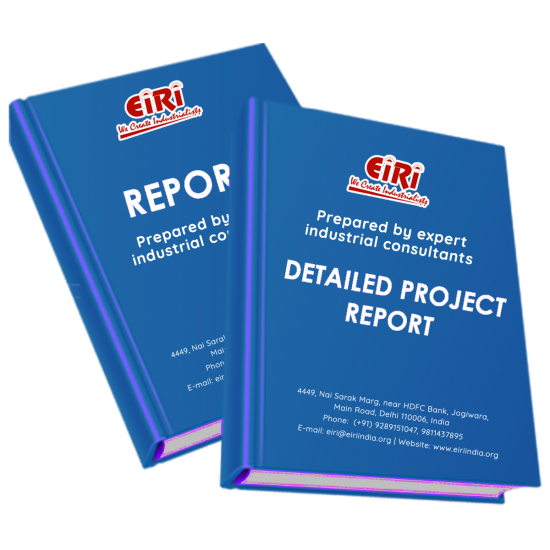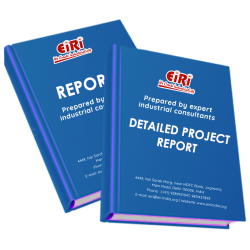Detailed Project Report on synthetic camphor manufacturing (extracting turpentine from pine wood extracting alpha pinene from turpentine, extracting isoborneol from alpha pinene, extracting camphor from iso borneol)

- More than 45 years of experience
- Managed by expert industrial consultants
- ISO 9001-2015 Certified
- Registered under MSME, UAM No: DL01E0012000
- 24/5 Research Support
Get your quesries resolved from an industry expert. Ask your queries before report or book purchase. - Custom Research Service
Speak to the our consultant to design an exclusive study to serve your research needs. - Quality Assurance
All reports are prepared by highly qualified consultants & verified by a panel of experts. - Information Security
Your personal & confidential information is safe & secure.
SYNTHETIC CAMPHOR MANUFACTURING
(EXTRACTING TURPENTINE FROM PINE WOOD EXTRACTING ALPHA, PINENE FROM TURPENTINE, EXTRACTING ISO BORNEOL FROM
ALPHA PINENE, EXTRACTING CAMPHOR FROM ISO BORNEOL)
[CODE NO. 3132]
Camphor (/kaemfer/) is a waxy, flammable, white or transparent solid with a strong aroma. It is a terpenoid with the chemical formula C10H16O. It is found in the wood of the camphor laurel (Cinnamomum camphora), a large evergreen tree found in Asia (particularly in Sumatra, Indonesia and Borneo) and also of the unrelated kapur tree, a tall timber tree from the same region. It also occurs in some other related trees in the laurel family, notably Ocotea usambarensis. The oil in rosemary leaves (Rosmarinus officinalis), in the mint family, contains 10 to 20% camphor, while camphorweed (Heterotheca) only contains some 5%. Camphor can also be synthetically produced from oil of turpentine. It is used for its scent, as an ingredient in cooking (mainly in India), as an embalming fluid, for medicinal purposes, and in religious ceremonies. A major source of camphor in Asia is camphor basil (the parent of African blue basil).
The molecule has two possible enantiomers as shown in the structural diagrams. The structure on the left is the naturally occurring (R)-form, while its mirror image shown on the right is the (S)-form.
Nor camphor is a camphor derivative with the three methyl groups replaced by hydrogen.
The word camphor derives from the French word camphre, itself from Medieval Latin camfora, from Arabic kafur, ultimately from Sanskrit, / karpūram. Camphor was well known in ancient India during the Vedic period. In Old Malay it is known as kapur Barus, which means "the chalk of Barus". Barus was the name of an ancient port located near modern Sibolga city on the western coast of Sumatra island. This port traded in camphor extracted from laurel trees (Cinnamonum camphora) that were abundant in the region. Even now, the local tribespeople and Indonesians in general refer to aromatic naphthalene balls and moth balls as kapur Barus.
COST ESTIMATION
Plant Capacity : 5.00 TON/day
Land & Building (3000 Sq.Mt) : Rs. 3.10 Cr
Plant & Machinery : Rs. 1.35 Cr
Working Capital for 1 Month : Rs. 2.48 Cr
Total Capital Investment : Rs. 7.08 Cr
Rate of Return : 36%
Break Even Point : 45%
INTRODUCTION
USES & APPLICATIONS
PROPERTIES & CHARACTERISTICS OF CAMPHOR
PROPERTIES
PROPERTIES & CHARACTERISTICS OF INTERMEDIATE COMPOUNDS
DESCRIPTION AND USE OF TURPENTINE
PLANT SOURCES
B.I.S. SPECIFICATION
MARKET SURVEY
PROCESS OUTLINE FOR SYNTHETIC CAMPHOR MANUFACTURING
MANUFACTURING PROCESS OF SYNTHETIC CAMPHOR
PROCESS FLOW DIAGRAM FOR MANUFACTURE OF SYNTHETIC
CAMPHOR FROM TURPENTINE OIL
SYNTHETIC CAMPHOR FLOW DIAGRAM
METHOD OF EXTRACTION TURPENTINE FROM PINE WOOD
EXTRACTION OF ISO-BORNEOL FROM ALPHA PINENE
PROCESS FLOW DIAGRAM
EXTRACTION OF CAMPHOR FROM ISOBORNEOL
CAMPHOR IN ROUND SHARE (BALL'S SHAPE)
PROCESS OF TURPENTINE OIL FROM CRUDE RESIN (OLEORESIN OR PITCH OBTAINED FROM LIVING PINE TREE)
PROCESS FLOW DIAGRAM FOR THE MANUFACTURE OF TURPENTINE OIL
PURIFICATION OF TURPENTINE OIL
METHOD FOR EXTRACTING ALPHAPINENE IN THE TURPENTINE
DISTILLATION PROCESS
MANUFACTURING PROCESS OF BORNEOLS AND CAMPHENE
BIOSYNTHESIS OF PINENE OF CAMPHOR
METHOD OF SEPARATING TURPENES
PRINCIPLES OF PLANT LAYOUT
PLANT LOCATION FACTORS
EXPLANATION OF TERMS USED IN THE PROJECT REPORT
PROJECT IMPLEMENTATION SCHEDULES
PLANT LAYOUT
SUPPLIERS OF RAW MATERIALS
SUPPLIERS OF PLANT & MACHINERY
APPENDIX – A:
1. COST OF PLANT ECONOMICS
2. LAND & BUILDING
3. PLANT AND MACHINERY
4. FIXED CAPITAL INVESTMENT
5. RAW MATERIAL
6. SALARY AND WAGES
7. UTILITIES AND OVERHEADS
8. TOTAL WORKING CAPITAL
9. COST OF PRODUCTION
10. PROFITABILITY ANALYSIS
11. BREAK EVEN POINT
12. RESOURCES OF FINANCE
13. INTEREST CHART
14. DEPRECIATION CHART
15. CASH FLOW STATEMENT
16. PROJECTED BALANCE SHEET
How to Make Project Report?
Detailed Project Report (DPR) includes Present Market Position and Expected Future Demand, Technology, Manufacturing Process, Investment Opportunity, Plant Economics and Project Financials. comprehensive analysis from industry covering detailed reporting and evaluates the position of the industry by providing insights to the SWOT analysis of the industry.
Each report include Plant Capacity, requirement of Land & Building, Plant & Machinery, Flow Sheet Diagram, Raw Materials detail with suppliers list, Total Capital Investment along with detailed calculation on Rate of Return, Break-Even Analysis and Profitability Analysis. The report also provides a birds eye view of the global industry with details on projected market size and then progresses to evaluate the industry in detail.
We can prepare detailed project report on any industry as per your requirement.
We can also modify the project capacity and project cost as per your requirement. If you are planning to start a business, contact us today.
Detailed Project Report (DPR) gives you access to decisive data such as:
- Market growth drivers
- Factors limiting market growth
- Current market trends
- Market structure
- Key highlights
Overview of key market forces propelling and restraining market growth:
- Up-to-date analyses of market trends and technological improvements
- Pin-point analyses of market competition dynamics to offer you a competitive edge major competitors
- An array of graphics, BEP analysis of major industry segments
- Detailed analyses of industry trends
- A well-defined technological growth with an impact-analysis
- A clear understanding of the competitive landscape and key product segments
Need Customized Project Report?
- Ask for FREE project related details with our consultant/industry expert.
- Share your specific research requirements for customized project report.
- Request for due diligence and consumer centric studies.
- Still haven't found what you're looking for? Speak to our Custom Research Team
About Engineers India Research Institute:
Note: We can also prepare project report on any subject based on your requirement and country. If you need, we can modify the project capacity and project cost based on your requirement.
Our Clients

Our Approach
- Our research reports comprehensively cover Indian markets (can be modified as per your country), present investigation, standpoint and gauge for a time of five years*.
- The market conjectures are produced on the premise of optional research and are cross-accepted through associations with the business players
- We use dependable wellsprings of data and databases. What's more, data from such sources is handled by us and incorporated into the report
Why buy EIRI reports?
- Our project reports include detailed analysis that help to get industry Present Market Position and Expected Future Demand.
- Offer real analysis driving variables for the business and most recent business sector patterns in the business
- This report comprehends the present status of the business by clarifying a complete SWOT examination and investigation of the interest supply circumstance
- Report gives investigation and top to bottom money related correlation of real players/competitors
- The report gives gauges of key parameters which foresees the business execution






















